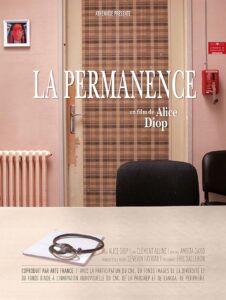This post, published in 2024-2025, is part of our Research Initiation Scheme for 2023-2024.
The conference “French Studies and the Medical Humanities: Critical Intersectionalities” took place at the University of London’s Institute of Languages, Cultures, and Societies on the 3rd and 4th of September, 2024. I was fortunate to be able to attend with the support of a Modern Languages MRes Travel Bursary from the Modern Languages Core Disciplinary Research Group.
As part of a strategic effort to de-centre anglophone perspectives and broaden the linguistic horizons of the field, the conference sought to highlight the importance of linguistic and cultural sensitivity in ongoing conversations about medical experiences. Paper topics included critical disability studies, environmental anxiety, bibliotherapy, and narrative medicine.
In her paper titled “L’affaire Anne Bert: Assisted dying between law and literature”, keynote speaker Anna Elsner (University of St Gallen) discussed how individual narratives are co-opted by politicians and governments to shape the lawmaking process. She highlighted the example of Anne Bert, a former court-appointed legal guardian who became a writer later in life. After being diagnosed with ALS (amyotrophic lateral sclerosis) in 2015, she publicly campaigned for changes in France’s legislation surrounding assisted dying, before travelling to Belgium to seek an assisted death in 2017. This decision was subject to widespread debate in the French media and parliament. Elsner’s paper encouraged attendees to de-centre their own perspectives and allow both the medical humanities and French studies to enrich each other through their mutual engagement.

Of particular interest to my own project was a panel titled “Disability and Clinical Environments”. In her paper on disability in the works of Samuel Beckett, Molly Crozier (University of St Andrews) discussed the networks of care that exist outside of traditional medical settings and the intimacy involved in caring relationships, especially in light of the capacity of interpersonal relationships to cause more harm than good. Áine Larkin (Maynooth University) then analysed how the documentary La Permanence by Alice Diop centres the patient and their subjectivity in its depiction of the clinical encounter, and how it positions vulnérabilité (vulnerability) alongside the French values of liberté, égalité, fraternité (freedom, equality, fraternity). These papers helped me think about the caring relationships depicted in my own corpus texts, and pointed to useful sources that helped me shape the conclusion of my MRes dissertation.
In a separate panel titled “Transforming Medical Practice through Literature and Philosophy”, Amy Wiglesworth and Pat Day (Sheffield Hallam University) shared their plans to study the effectiveness of French fiction in translation as a bibliotherapeutic tool for work-related depression. Because bibliotherapy encourages readers to recognise themselves in the characters from a story, specific texts could be chosen to promote autonomy and empowerment for the patient. This talk helped me think about how my corpus texts could help educate people who are curious about autism and empower autistic people to develop better self-esteem and seek the support they need.
The conference ended with a postgraduate/ECR methods workshop sponsored by ASMCF (Association for the Study of Modern and Contemporary France) and led by Benjamin Dalton (Lancaster University). It provided a space to discuss some of the challenges we face as researchers in French studies and the medical humanities, and was a fantastic networking opportunity. Overall, the conference was a wonderful way to meet researchers working in a similar field to myself, and it allowed me to make new and interesting connections that I otherwise would not have. By encouraging me to think about the landscape of French medical humanities, it shaped the conclusion of my MRes dissertation and will be vital to shaping the beginning of my PhD research.
Report by Emily Monroe, PhD student in French (at the time of attending the conference, Emily was an MRes student in French)
Editor’s note 1: The aim of the Modern Languages MRes Travel Bursaries is to support current MRes students in Modern Languages in undertaking travel to further their dissertation research. Funding for the scheme is provided by the QUB Vice-Chancellor’s Research Culture Prize, won by the Modern Languages Core Disciplinary Research Group in 2018.
Editor’s note 2: The title of Emily’s MRes dissertation was ‘D’un monde à l’autre: Representing autism in contemporary French literature’. She is now working on a PhD in French at Queen’s with the working title of ‘The writer as advocate in contemporary French literature on autism’. The project will examine how authors are influenced by and respond to political discourses and legal developments concerning autism.